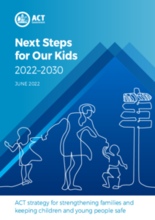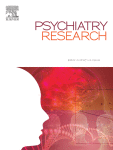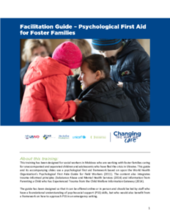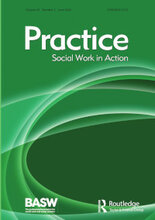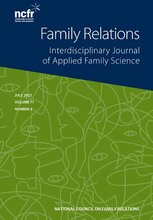Displaying 1691 - 1700 of 14559
Next Steps for Our Kids (Next Steps) sets out an ambitious reform agenda building on the positive outcomes seen through the implementation of the previous A Step Up for Our Kids Strategy (A Step Up) and addresses the continuing challenges seen in the child and youth protection system in Australia. Next Steps is an evolution of A Step Up and will see various original elements matured, extended and expanded.
This sixteenth issue of the South African Child Gauge focuses attention on child and adolescent mental health and how early experiences of adversity ripple out across the life course and generations at great cost to individuals and society. It calls on South African society to put children at the centre of all policies in order to protect children from harm, build their capacity to cope with stress and adversity, and provide them with opportunities to thrive.
This study investigated the prevalence of and factors associated with complete mental health (CMH) among a nationally representative sample of Canadians who had contact with child welfare services before age 16.
The war in Ukraine has forced millions to flee the country, but some of the most vulnerable have been left behind. NBC’s Richard Engel reports for TODAY on the Vilshanka Orphan House. Warning: some of the images in this report may be distressing.
This Certification Training details how the nationally-adopted Standards of Quality for Family Strengthening & Support can enhance work with families through focus on 5 areas of practice: Family Centeredness, Family Strengthening, Diversity, Equity and Inclusion, Community Strengthening, and Evaluation. Whether you are program staff setting up a new program or strengthening an existing one, or a funder developing or monitoring programs, the Standards provide a blueprint for implementing best practice. In follow-up surveys at 3 months and 9 months after the Certification Training, more than 91% of respondents indicated that the Standards enhanced their Program's work with families.
During this webinar, organized by Transform Alliance Africa (TAA), they will talk about how they have developed the innovation in Uganda which is focusing on four key areas: Trauma and Stress, Depression and Suicidal Thoughts and Feelings, Anxiety, and Loss and Grief.
This training has been designed for social workers in Moldova who are working with foster families caring for unaccompanied and separated children and adolescents who have fled the crisis in Ukraine.
This paper presents findings from a study on care leavers’ experiences of transitional housing at three institutions in Zimbabwe. Using the social sustainability conceptual framework, the study found that transitional housing offers continuity of care, relationships, and a smoother, gradual transition from care to independence.
With the rapid economic development in China, large numbers of migrants are moving to metropolitan areas in search of better jobs. They are faced with the dilemma of whether to leave their children behind in the countryside due to various socioeconomic factors. The aim of the study was to analyze the impact of different migration arrangements on child welfare.
On February 24, in the early hours of a cold, dark morning in Lviv, two phones in one apartment rang nearly simultaneously. The phones belonged to two women, Maryna and Nataliia, professional colleagues of a sort and temporary roommates; they were also newfound friends, both of them pregnant and near the beginning of their third trimesters.

